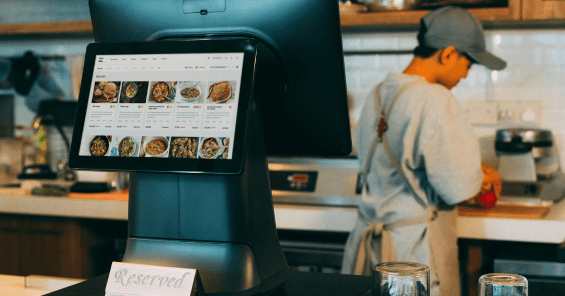

How to Know When Your Restaurant Needs a Business Plan: 6 Key Signs
Learn when to create or update your restaurant business plan to maximize success. Discover the benefits of a strategic plan, from managing costs and driving growth to gaining a competitive edge and preparing for expansion.
A restaurant business plan is more than just a document; it’s the blueprint for success, guiding every critical decision from the first concept sketch to future expansions. Comprehensive research and early planning are essential to building profitability, helping you avoid common restaurant business plan pitfalls and making each step forward purposeful.
But when is the right time for a restaurant to create its business plan, and when should existing restaurants consider updating theirs?
Let’s take a look.
Restaurant Business Plan Template
Lay the foundation for your restaurant's success with a comprehensive, customizable business plan template. From concept to cash flow, this guide walks you through every essential step.

What is a Restaurant Business Plan?
Think of a restaurant business plan as your restaurant’s playbook. It includes everything from defining your concept and market to financial projections and operational strategies.
Your plan defines your restaurant concept, target audience, financial goals, marketing strategy, and daily operational needs.
By following a structured restaurant business template, you can capture every component needed to ensure your restaurant is ready for success long before a grand opening.
Key Benefits of Having a Restaurant Business Plan
1. Pathway to Success
With a thoughtful business plan in place, you’re setting yourself up for smoother operations and stronger outcomes. The plan not only lays out what needs to be done but also helps you think through each element of your restaurant’s structure. By defining objectives and steps, you’re better equipped to handle challenges and keep your goals on track in the long-term.
Where it fits in your plan: Start with the Executive Summary, where you’ll outline the core vision and objectives to stay focused on long-term success.

2. Managing Costs and Avoiding Overspending
Operators often face high initial restaurant startup costs, and without a financial game plan, expenses can quickly spiral. A detailed restaurant business plan helps keep spending in check by setting budgets, projecting cash flows, and preparing for expected expenses.
For those considering opening a franchise, it helps plan for franchise fees, royalties, and other financial commitments, keeping you prepared and in control.
Where it fits in your plan: Outline budgets, revenue projections, and cost control systems within the Financial Plan to establish a solid financial footing from day one.
3. Laying a Solid Groundwork for Growth
Thinking about growth starts from day one. Whether you’re planning to expand or adjust a menu, open a second location, or create franchise opportunities, a business plan is essential for scalable growth. With clear, structured strategies, you’ll have a roadmap for reaching your goals and ensuring you’re ready when the time to expand arrives.
Where it fits in your plan: Include growth strategies in the Business Overview and Financial Plan sections to outline a clear roadmap for expansion.
4. Gaining a Competitive Edge
By analyzing restaurant industry market trends, identifying your target customer, and understanding competitors’ strengths, you can uniquely position your business. A comprehensive plan ensures you stay responsive to the market and continue attracting new customers.
Where it fits in your plan: Use the Market Analysis and Competitive Analysis sections to refine your positioning and give your restaurant a clear edge.
Signs It’s Time to Write or Update Your Restaurant Business Plan
Sign #1: You have a restaurant idea but need clarity on the concept and market
If you’re refining your restaurant’s concept or unsure of your target audience, it’s time to create or revisit your business plan. Defining your unique style, brand message, and market position will set a clear path forward and validate the concept with your intended audience.
By creating a clear concept, you’re laying the groundwork for a brand that resonates with your target audience and sets your restaurant apart from others.
Where it fits in your plan: Capture your brand vision in a Concept or Restaurant Model section of a restaurant business plan to clarify what sets your restaurant apart.
Sign #2: You're ready to approach investors or lenders for funding
If you’re planning to approach investors or lenders, a thorough business plan is a must; without one, securing the necessary funds can be challenging. Investors want to see a clear picture of the costs and expected returns of your restaurant concept.
When you’re ready to attract investors, you’ll need a comprehensive business plan that outlines your restaurant’s financial structure, revenue potential, and growth strategy. This reassures investors and provides you confidence that your restaurant will operate within its budget and achieve financial stability over time.
Where it fits in your plan: Build out a strong Financial Plan section to showcase your revenue models, projected expenses, and financial goals to secure investor buy-in.

Sign #3: You’re facing consistent financial challenges & competition
If your restaurant is facing financial performance gaps or rising competition, it’s a sign that you may need to re-evaluate your business plan.
Whether you’re experiencing unanticipated expenses, combatting food cost fluctuations, seeing a drop in customer traffic, or noticing new competitors in your area, a revised plan can help you regain control of finances and refine your competitive approach.
Look at your competitors: Are they offering new dishes, promotions, or ambiance that attracts your shared target market? This insight reveals opportunities to enhance your offerings, adjust pricing, or create targeted promotions.
Where it fits in your plan: Revisit the Competitive Analysis to evaluate rival strategies and update the Financial Plan to address any budgeting changes, competitive pricing, or promotional initiatives.
Sign #4: You’re remodeling and in the final stages of pre-opening
If you’re in the pre-opening stages or planning a remodel, your business plan can keep everything on track.
This is when you’ll lock in the finer details: hiring restaurant staff, training, finalizing your menu, marketing strategies, and establishing service standards.
For those remodeling, it’s an opportunity to ensure the design aligns with your brand identity and appeals to your ideal customer.
Will the updated layout create a better flow? Will new decor elements enhance the dining experience?
A pre-opening business plan will outline how you’ll launch marketing initiatives, attract initial customers, and create a memorable first impression that encourages return visits.
Where it fits in your plan: Review the Restaurant Design and Marketing Plan to ensure your concept is ready to deliver a great customer experience and attract attention.
Sign #5: You’re considering growth or adapting to market shifts
If your restaurant is looking to expand, whether by adding new locations or services like catering, revisiting your business plan is key.
A well-updated plan allows you to stay responsive to market trends, evolving customer preferences, and competitive pressures, while also ensuring you track essential franchise KPIs, such as franchisee turnover rate.
A refreshed plan allows you to navigate these changes, weigh new revenue opportunities, and remain aligned with industry trends.
Where it fits in your plan: Incorporate new strategies into the Business Overview and Financial Plan, addressing growth while staying responsive to market demands.

Sign #6: You’re introducing a concept & operations overhaul
Let’s say you’ve received consistent customer feedback that reveals similar concerns surrounding pricing, quality, or service. This might signal a need to re-evaluate the business plan.
Integrating customer feedback into your plan helps address issues proactively, allowing you to better meet customer expectations and improve its reputation.
If you’re changing your concept, optimizing menu pricing, or revamping service operations, a revised business plan will guide these changes, keeping the team aligned with the updated brand direction.
Where it fits in your plan: Use the Concept, Management, and Marketing Plan sections to reflect your updates and communicate the changes to your team and customers.
Looking to change up your menu based on customer feedback? Striving to streamline your back-of-house operations for more efficiency?
Build margin-rich recipes, eliminate time-consuming manual tasks, and boost your bottom line with restaurant management software. MarketMan unlocks restaurants’ profit potentials with advanced automation, predictive analytics, and strategic insights, enabling restaurateurs to drive their business and deliver results. Ready to see it in action? Book a demo today.
Author
Contributors
If you have any questions or need help, feel free to reach out
Don't miss out on maximizing your restaurant's profits! Calculate your ROI with MarketMan
Join over 18,000 restaurants and get the hottest restaurant tips delivered to your inbox
You may also be interested in
Ready to get started?
Talk to a restaurant expert today and learn how MarketMan can help your business






